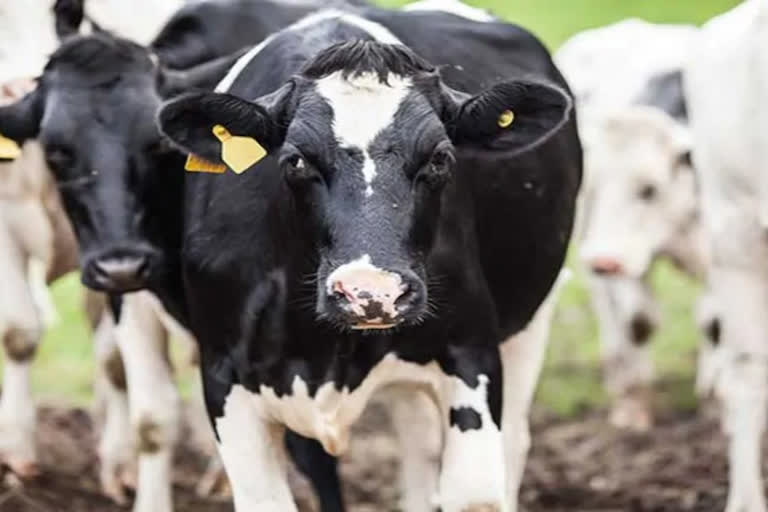Hyderabad: After surrogacy in humans to conceive, and now, it is the turn of cattle. While the experiment is already being implemented at Guntur Lam Research Centre; efforts are underway to raise embryos for Ongole cows at Chadalwada cattle farm in Prakasam district also.
Cows that naturally have difficulty in mating livestock are identified and the embryos have been developed in a lab and sent them and arranged to give birth to calves. Cows can be spotted either by natural combination or by artificial insemination injections.
Thus each cow gives birth to 9 to 15 calves in its lifetime. New experiments are being carried out with an aim of increasing the number of cattle. Good results are being achieved by implementing surrogacy for cattle at Lam Research Centre in Guntur.
Also read: NDRI develops buffalo calf using cloning for high milk yield
Endangered Ongole and Punganur breeds are being used for embryo transfer technology to raise their offspring. Semen is collected from quality cattle and an embryo is developed. It is implanted in cattle and in order to give birth to calves. This approach is being implemented to increase the number of endangered Ongole breed herds. This approach produces up to about 50 calves per cow. However, after giving birth to a maximum of 15 calves, it is difficult for cows to conceive due to natural combination or artificial insemination.
Naturally, the injured, older cows are difficult to conceive and carry. Calves can also be bred by similar cows through embryo transfer technology. The semen of the Ongole breed of cattle is collected, fertilised in the laboratory and artificially injected into the womb a week after the embryo is fertilised. The cow gives birth to a calf after nine months. A cow can give birth up to 50 calves in her lifetime.
"We are using embryo transfer technology to raise the offspring of endangered species such as Ongole and Punganur. We develop embryos in the lab using embryo transfer technology to semen collected from quality livestock and will inject artificially into the womb of cows. If the ovum of any breed of cattle enters, the calf of the same breed is born," Dr Vijayakumar Reddy, veterinary officer, Chadalwada, explained.
Officials say the embryo transfer technology is part of an effort to develop Ongole livestock.




